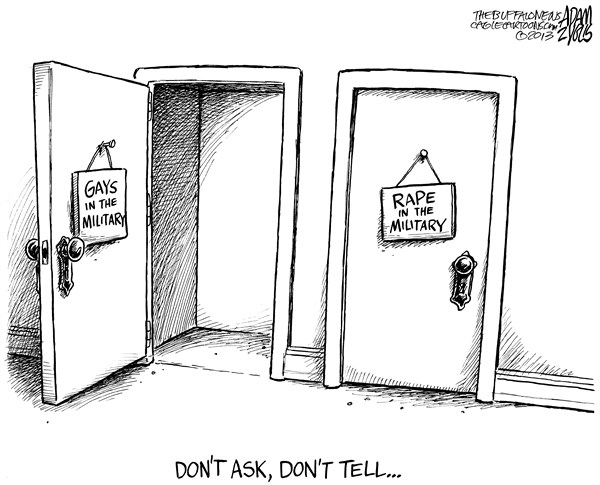Violence Against Women in the Military
A Proposal for Overseeing the Chain of Command

Violence against women in the U.S. military does profound damage to the victims and to the integrity of the armed forces. A major reform of the U.S. military justice system is urgently required.
The present system is broken. It has proven to be incapable of preventing these rapes and other criminal assaults. What can be done to meet this crisis?
One approach is to ask Congress to deprive commanding officers of their present authority over courts martial in assault cases and to shift that authority to prosecuting attorneys who are outside the chain of military command. This proposal is adamantly opposed by the top brass in all the services. The likelihood of such a radical change is virtually none.
I am interested in proposals that may go a distance toward a solution of this crisis.
One such proposal is my own. It is that the Secretary of Defense should create a special unit staffed by experienced prosecutors from the Department of Justice. These men and women would report directly to the Secretary of Defense. They would have no authority whatsoever. Their job would be limited to assembling facts and providing an overview of how the present military justice structure deals with reports of violence to service women. The authority of commanding officers would be unchanged.
The focus of this oversight group would be on five elements of the military justice system:
1. Determine the percentage of women in each command and service who file complaints.
2. Determine the percentage of complaints that lead to courts martial.
3. Conduct a review of those cases where a complaint has not led to a court martial, and determine the percentage of cases in which, in their opinion as professional prosecutors, probable cause had been present but disregarded.
4. Determine the percentage of courts martial that render guilty verdicts.
5. Determine the percentage of guilty verdicts that are reversed or modified.
Then that information would be compared with like data for other units. For example, say that 10 percent of the women serving in a Coast Guard command file complaints, while only 5 percent of Air Force women do so. Say that 50 percent of Army women’s complaints go to courts martial, while only 30 percent of women Marines’ do. And so on, comparing the percentages for probable cause, for guilty verdicts, and for reversals.
This information would then be widely published.
It is my belief and expectation that such publicity would create a strong demand in the media and among women’s rights groups (and among the increasing number of women sitting in the House and Senate) for the military establishment to come up with rational explanations of gross disparities among military units. I believe a climate of public opinion would develop that focused on reform. Commanding officers would be aware that evidence of bias against women on their part could impact their career prospects. The military community would hear the public demand for action.
Officers with full knowledge of how military courts martial function have considered my proposal. They are skeptical that public demand will be sufficient to force a remedy of the problem. They point to the weak link in the present system: It is the fact that the reviews of a complaint of violence and the recommendation for or against convening a court martial are made by junior officers of the rank of lieutenant or captain, and that these officers lack the training and experience to make the call of whether the evidence is adequate in cases of alleged violence against women. Commanding officers make the actual decision whether to convene a court martial, but they must necessarily depend on the JAG (Judge Advocate General’s Corps) officer’s advice. These commentators tell me that what must be done is to transfer the duties of these JAG officers to independent civilian lawyers with the requisite training and experience, who can give professional advice to the commanding officer.
It is presumptuous for me, having no expertise, to advance my untried proposal. My hope is that it will generate more debate and help find a workable solution.



